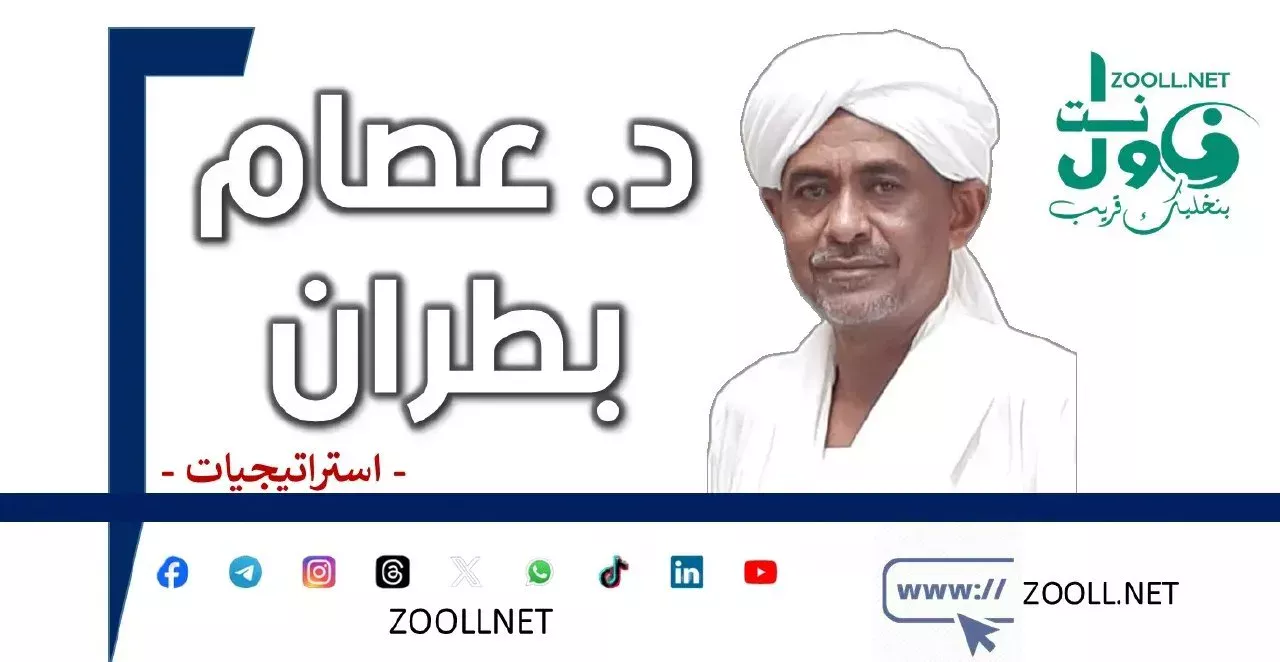Is America Morally Qualified to Negotiate Mediation?! – Strategies – ✍️ Dr. Issam Batran

– Legitimate questions arise whenever the United States of America rises to intervene in Sudanese affairs under the guise of mediation negotiated between the Sudanese parties at various political times, but the most important of all these questions is: (Is the United States of America morally qualified to play the role of mediator in the Sudanese war)…??, The answer to this question comes from the reality of the dirty historical record played by the United States of America (the mother of the Troika) in the separation of South Sudan and going back on all the false promises it made to the Sudanese government until it got (the stick) and denied it the (carrot) and separated the South (for free), and the scenario continues to separate the remaining four mini-states of the former Sudan without any warning of what came before…
The United States of America began its hostility towards the Sudanese governments with a series of measures aimed at isolating, dismantling and attacking them in order to implement the strategy of separation of South Sudan, which the Western powers and the Zionist entity have been seeking for a long time…
– Republican member of the US House of Representatives (Benjamin Jaliman), who was the initiator of a US House of Representatives resolution condemning the Sudanese government for its alleged repeated human rights violations, noted that the resolution called on the government in Sudan to hand over power to an elected (civilian) government as soon as possible, during his speech before the House of Representatives: (For the past few months, I have sought, in cooperation with a number of my colleagues, to draw attention to the disaster that has befallen South Sudan.) He added: The government in Khartoum, by violating human rights and committing acts of violence that have led to the creation of famine in South Sudan, has further exacerbated the disaster there.
Washington continued to pressure Sudan. In March 1995, Edward Prine, U.S. Assistant Secretary of State for African Affairs, said: “We will continue to exert bilateral and multilateral pressure on Khartoum. We must seek a change in Khartoum's behavior, and we must do so. The Sudanese government must understand that these policies and practices, which we consider unacceptable, constitute a threat that will ultimately lead to its downfall.”
The US campaign to impose unilateral sanctions against Sudan was only the beginning of the escalation of pressure on Sudan from international organizations and the Security Council. the course of events by many means, including imposing sanctions and promising incentives that were known as the “carrot and stick” policy, and to maintain US pressure on the Sudanese government, the United States of America issued the Sudan Peace Act, which was passed by the Senate with full consensus on 10/10/2002 AD and signed by President Bush to become a law in force on October 22, 2002 AD. The law represents a flagrant violation of the sovereignty of Sudan, which, under this law, is now under direct American trusteeship. It also threatens military intervention, as shown by the clause concerning the rehabilitation of residents in areas not controlled by the government and the creation of a territory. civil administration and development of these areas without government permission. The law expresses a blatant bias in favor of the rebel movement, threatening the government with a series of sanctions if it thwarts negotiations, while if the movement thwarts negotiations, the Sudanese people. The Liberation Movement that rebels against the Sudanese army is not punished!! . On the contrary, it went so far as to double the movement's financial allocations and rewards by $300 million, accompanied by a torrent of accusations against the government, such as ethnic cleansing, religious persecution, human rights violations and slavery.
– All the negotiation mediation files demanded by the United States of America on the Sudanese issue are devoid of ethics, even those that came after the period of the so-called revolution of 2019 AD were only to take place in the interest of the rebel movements against Sudan. and the recent call by the United States of America for negotiations between the Sudanese army and the rebel militias on August 14, 2024 AD, in the Swiss capital, Geneva, a stronghold of Western regional and international organizations, they will also come to lure the Sudanese government into the (trap) of international escalation, episode after episode, until the deadline set for the completion of the plan to divide Sudan into mini-states in the year 2030 AD.






